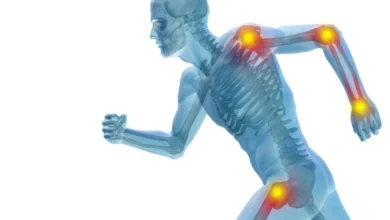Recovering from addiction often involves more than breaking free from substance dependence; it also means addressing the emotional and psychological challenges that come with it. Anxiety and depression are familiar companions in recovery, sometimes resurfacing as individuals adjust to life without the coping mechanisms they once relied on. Acknowledging and managing these emotions is crucial to developing lasting resilience, maintaining sobriety, and regaining a sense of balance and self-worth.
Healing requires an integrated approach that nurtures both mind and body. Supportive environments like Villa Kali Ma provide holistic treatment options designed to help individuals confront underlying trauma, develop emotional awareness, and build healthier habits. Through therapy, mindfulness, and community connection, individuals in recovery can rediscover their purpose and find peace. Overcoming anxiety and depression is not a single step but a continuous journey toward emotional freedom and sustained wellness.
In this article
Understanding the Emotional Challenges in Recovery
The initial phase of sobriety can trigger intense emotions such as anxiety and sadness. A study indicates that almost one-third of individuals undergoing alcohol treatment still experience anxiety and depression after detox, which increases the likelihood of relapse. These emotions often stem from trauma, loss of routine, or lack of coping strategies. Early identification is crucial. Being aware of these feelings and seeking support can help avoid setbacks. Peer support groups and healthcare providers highlight the importance of integrating mental health treatment with addiction recovery for more effective outcomes.
The Role of Exercise in Emotional Well-being
Exercise effectively helps manage anxiety and depression by releasing endorphins that elevate mood and decrease stress. Engaging in regular activities such as running, swimming, or brisk walking can lower depressive symptoms and reduce anxiety. Incorporating exercise into addiction recovery may enhance mood and improve overall results. Gentle activities like stretching, yoga, or walking support emotional stability and confidence rebuilding, leading to a more positive self-image and reduced stress.
Mindfulness and Relaxation Techniques
Mindfulness entails being present and accepting feelings without judgment. Methods such as guided meditation, muscle relaxation, and breathing exercises lower cortisol levels, reduce anxiety, and enhance emotional clarity. Consistent practice helps identify triggers and cravings, allowing for thoughtful responses rather than impulsive reactions. Practices like yoga and tai chi, which combine movement and breathwork, aid recovery by enhancing flexibility, balance, and inner peace key elements for maintaining long-term sobriety.
Establishing a Consistent Routine
Having a consistent daily schedule can help lower anxiety and lift mood by offering stability and predictability. Regular routines, such as set wake-up and sleep times, fixed meal times, and dedicated periods for work or relaxing, reduce uncertainty and help regulate circadian rhythms, easing the chaos often experienced during early recovery. Incorporating self-care activities like journaling or leisure pursuits can further support mental health. Completing routine goals also boosts self-confidence and helps divert attention from obsessive thoughts or cravings.
Building a Strong Support System
Support from others is one of the most effective defenses against anxiety and depression in recovery. Whether it’s family, friends, therapists, or peers from a support group, meaningful relationships can provide both accountability and encouragement. Sharing struggles alleviates the burden of isolation, while listening to others’ experiences offers hope and practical insights.
Community support is available in various formats, including 12-step meetings, online recovery forums, and group therapy sessions. Engaging in these supportive environments enhances resilience and strengthens commitment to long-term recovery.
Professional Help and Therapy
Collaborating with mental health professionals is crucial for severe or ongoing anxiety and depression. Treatments such as cognitive-behavioral therapy (CBT) help develop skills to control negative thoughts and feelings. Medication can also help manage mood and symptoms for some individuals. An integrated approach combining therapy, medications if necessary, and social support provides the most effective long-term mental health benefits. Early intervention and open communication support recovery and personalized treatment plans, minimizing the chances of relapse.
Nutritional Considerations
Food impacts mood and brain health. Eating a nutrient-rich diet that includes greens, proteins, healthy fats, and grains supports neurotransmitter balance, promoting emotional well-being. Excessive sugar and caffeine may cause mood swings and heightened anxiety. Working with a dietitian helps ensure proper nutrition and recovery. Staying hydrated, eating regularly, and practicing mindful eating can improve energy, focus, and mood, aiding recovery.
Conclusion
Emotional challenges, particularly anxiety and depression, are common but manageable obstacles on the road to addiction recovery. By weaving regular exercise, mindfulness, supportive routines, meaningful relationships, professional therapy, and balanced nutrition into daily life, individuals can effectively address these issues. With the right tools and support, these strategies lay the groundwork for lasting sobriety, deeper self-understanding, and true resilience.











